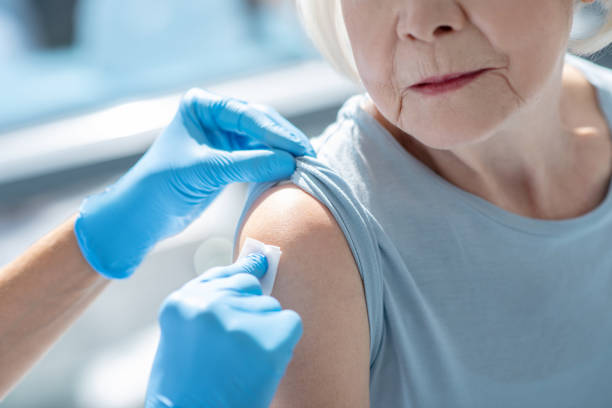
In a new cross-sectional analysis of 6,746 hospitalized adults aged 60 and older in 20 states, increased respiratory syncytial virus (RSV) vaccination was associated with being 75 years or older and having pulmonary disease.
Vaccination was also associated with having at least grade 12 education or the General Educational Development equivalent. The study was published yesterday in JAMA Network Open.
The authors assessed the patient characteristics associated with RSV vaccination among older adults hospitalized during the 2023-24 RSV season, the first year RSV vaccines were available. The cross-sectional study was conducted in 26 hospitals from October 2023 through April 2024.
The average patient age was 73 years, and 51.2% were female. In total, there were 700 RSV-vaccinated (10.4%) and 6,046 unvaccinated (89.6%) adults.
Being 75 years or older had an adjusted risk ratio (aRR) of 1.23 for RSV vaccination (95% confidence interval [CI], 1.10 to 1.38), which means a 23% higher rate of vaccination. Those with pulmonary disease had a 39% higher uptake (aRR, 1.39; 95% CI, 1.16 to 1.67), and those with compromised immune systems had a 30% higher rate (aRR, 1.30; 95% CI, 1.14 to 1.48).
Many don't know eligibility status
The authors also interviewed RSV-negative adults included in the study about RSV knowledge. They found that 47.2% had not heard of RSV or were unsure, and 78.5% were unsure if they were eligible for RSV vaccine or thought they were not. Of note, 41.7% of unvaccinated patients reported being open to future RSV vaccination.
Knowledge of RSV disease and vaccine eligibility was lower among participants with less educational attainment .
"Knowledge of RSV disease and vaccine eligibility was lower among participants with less educational attainment and those residing in communities with high social vulnerability," the authors wrote.
he Centers for Disease Control and Prevention recommended RSV vaccination for adults 60 years or older in June 2023.















